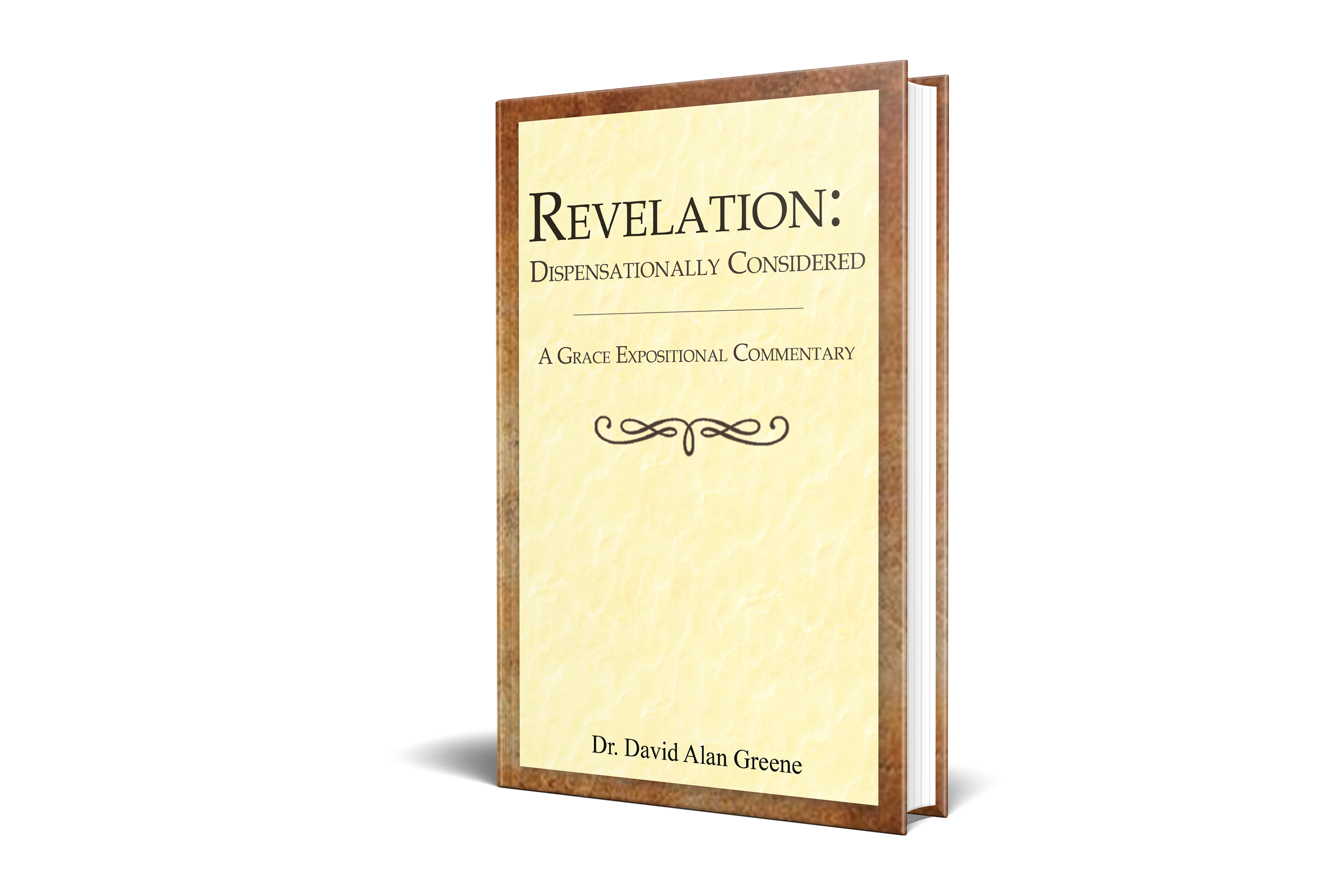Revelation: Dispensationally Considered
Revelation can be an intimidating book. In Revelation: Dispensationally Considered, the author Dr. David Alan Greene provides you with the tools you need. By properly using these tools, you can understand the content and purpose of the book. Dr. Greene applies the tool of rightly dividing Scripture as the Apostle Paul instructed Timothy. “Study to shew thyself approved unto God, a workman that needeth not to be ashamed, rightly dividing the word of truth” (2 Timothy 2:15). Using the literal-grammatical-historical method, he makes it clear to whom the content of the book was intended.
The author examines Daniel’s prophecy concerning the end times and the coming Kingdom. At the fulfillment of Daniel’s prophecy, God promised that He would: (1) finish the transgression, (2) make an end of sins, (3) make reconciliation for iniquity, (4) bring in everlasting righteousness, (5) seal up the vision and prophecy, and (6) anoint the most Holy Who is the King Eternal. Dr. Greene explains the difference between the application of the Gospel of Grace and the Gospel of the Kingdom. By the end of Revelation, each will have reached their promised conclusion. We suggest reading one of our Bible surveys before reading this book: Letters To Theophilus, The Glorious Destiny of Israel, or The Hidden Gospel. However, it is not necessary. Dr. Greene briefly summarizes any necessary information allowing the reader to do additional research if they desire. At the end, the reader will understand the content and purpose of Revelation.

